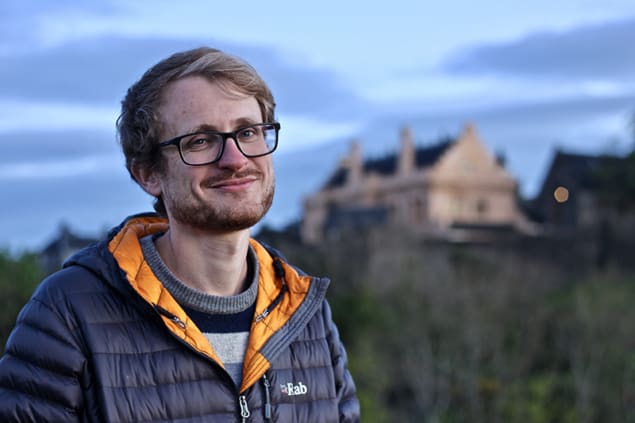
What skills do you use every day in your job?
The most useful skill I learnt during my studies, other than technical physics knowledge, was definitely programming. It comes into everything I do now; even simple every-day tasks often involve a small amount of programming. You don’t have to be a master coder to do research, but it really helps to learn a little bit of programming at least.
In terms of other skills, communication and project management are both very important in what I do day to day. Researchers are often involved in big collaborations with people all over the world, which means communicating with them via e-mail, web conferencing and at meetings. Managing your time and the project is also key. Project management is not often taught to physics undergraduates but is actually extremely useful.
Another skill that might not be expected when choosing a career in research is proofreading and copy editing. I spend a lot of my time writing and then reading through and checking papers and research proposals, so good writing and editing skills are very helpful.
Science is inherently the study of new and unknown things, so you should not be afraid of not knowing the answer to a new research question
What do you like best and least about your job?
Other than getting to participate in space missions, which is fantastic, I love the flexibility of being able to work how and when I want. Working from home and with flexible hours is very important for me. I also love travelling to international conferences, which are always fun and interesting. This has become a bit more difficult with COVID-19 (and a seven-month-old baby!), and may not appeal to everyone, but I always find it very enjoyable.
The worst thing about research is the unpredictability and the job insecurity. Postdoctoral research positions are fixed term, generally for two or three years, so every few years you have to consider your career options carefully. Because the subjects researchers work in are very specific and positions are limited, it often means moving cities and countries. Although it can be very interesting to live in different places and experience different cultures, it is also quite tiring after a while to have to keep moving. The biggest improvement I could see to academia would be more job security, such as longer term contracts for researchers.
What do you know today, that you wish you knew when you were starting out in your career?
Something I wish I’d realized earlier is that nobody knows anything! By which I mean that science is inherently the study of new and unknown things, so you should not be afraid of not knowing the answer to a new research question. With the basic toolkit of physics techniques and some thorough background reading on the subject, you can approach any new research areas and begin to solve problems that nobody has solved before.
When you are an undergrad, your professors seem like they know everything, but when you start research, you’ll quickly find that you know more than them about your specific scientific problem and they defer to your knowledge.
